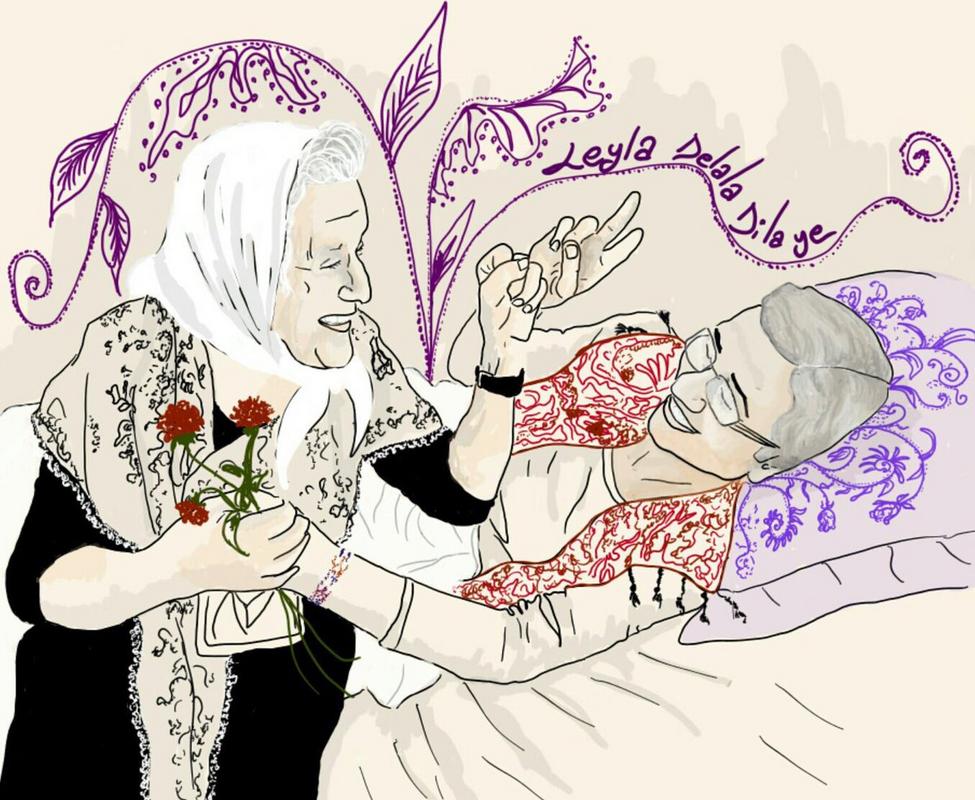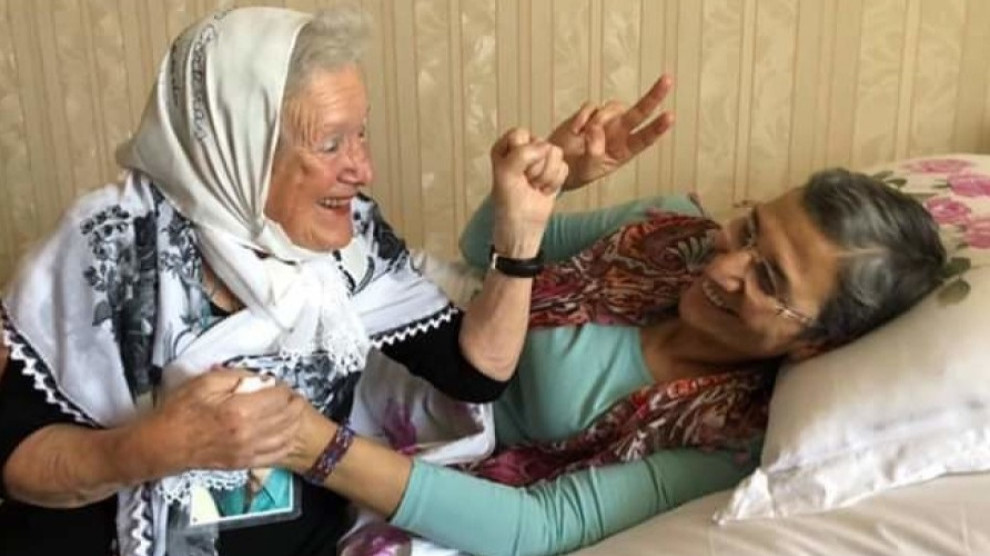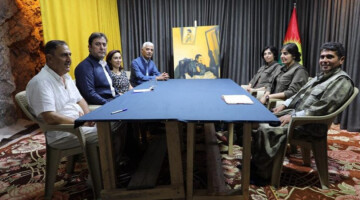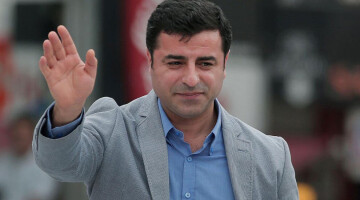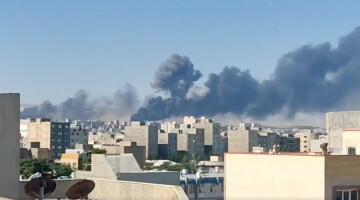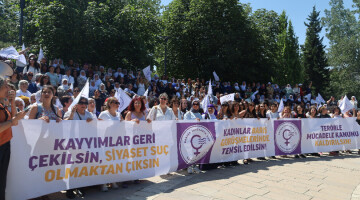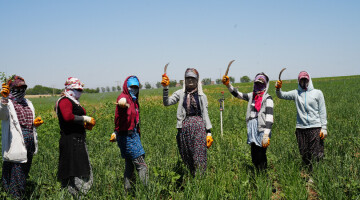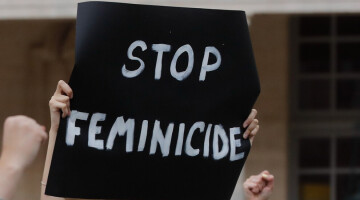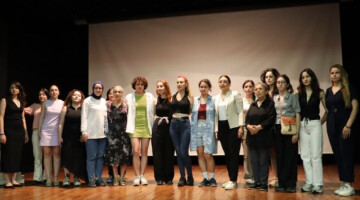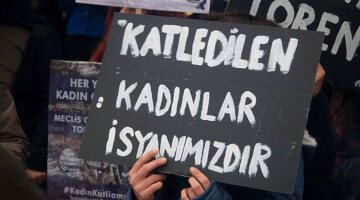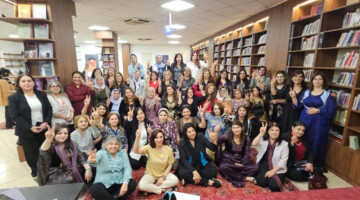Nora Cortiñas, Mother of Plaza de Mayo -Founding Line-, from Argentina, went to visit Leyla Guven, during the hunger strike, last march.
That visit there was not her first one to Bakur in Turkey. In 2012 and 2013 she visited Peace Mothers and Saturday Mothers. Out of those trips she made the documentary “Pañuelos para la Historia” (“Headscarves for History”).
In Argentina the Mothers of Plaza de Mayo meet every week in Mayo Square. They have been doing this for 42 years. A peaceful action, like that of the Saturday Mothers in Istanbul. They demand justice for their sons, and the 30,000 disappeared people of Argentina.
With time they added to theirs other struggles from Argentina and all world. The struggle of the Kurdish people, the memory of Legerin Ciya (Alina Sánchez), the hunger strikes, the basements of Cizre, and the demand to free Abdullah Öcalan have been present at the demonstrations every Thursday in the Plaza de Mayo.
Last Thursday, a days after the end of the 200-day hunger strike led by HDP deputy Leyla Güven, Nora Cortiñas spoke in Plaza de Mayo about the situation of resistance of the Kurdish people: "You remember that Öcalan is imprisoned 20 years ago on the prison of Imrali, and that Leyla Güven, 56, began an indefinite hunger strike six months ago, calling to end isolation, and was joined by thousands of political prisoners and activists.
Leyla herself said that the strike was not to die, but so that her people could live with dignity. She stayed 200 days on hunger strike. As a result of the resistance the government allowed visits to Abdullah Öcalan. It was a victory for the hunger strikers who spread the protest worldwide and that forced the president of Turkey, Erdogan, to announce that isolation ended."
Nora also spoke of the importance of monitoring what happens and of continuing to put pressure to ensure isolation really ends.
ANF interviewed Nora Cortiñas.
- What did you feel after visiting Leyla Güven? Which impact had her struggle on you?
From the day I went to see Leyla Güven it felt many emotions, great admiration, for her and for all the Kurdish people. I already knew about the Peace Mothers and the Saturday Mothers, as we had done a documentary with them ("Headscarves for History").
But the day I went and hugged Leyla, it was something special, first because it is another world, it is not our world, and it is a world that I did not know, it was all very beautiful. Furthermore, the admiration and respect for political leader Abdullah Öcalan gave me an impression that made me feel that this is the true struggle and resistance of a people. I appreciated the love among them because for a peoples to take a determination like Leyla's and have seven thousand companions to follow your action with the same dedication, it's a beautiful thing. The Kurdish people do not deserve so much persecution, that's why the president of Turkey Erdogan persecuted them wherever they are.
-After the victory of the hunger strikes that made the Turkey government publicly accept the end of the isolation and grant at least two visits after eight years, do you think that the Turkish government will effectively comply with what it says?
I think it will cost a lot, my Kurdish friends doubt that it will happen, given as Erdogan behaved with other peoples, with the Kurdish people and with Syrian people, unleashing so much war and massacres. But we may keep the strength of belief and conviction, because in any case what is clear is that the Kurdish people will keep fighting and will never lower its flags. I think it is evidence of historic resistance, very important. That is not to say that the government will let them live in peace, this would indeed be a mayor achievement, but with what they have achieved so far they are certainly going that way.
-What were your feelings and impressions in your trips to the Turkish Kurdistan?
-When I went to film the documemtary with Alejandro Haddad it was very important, it was shocking, because I did not know that region, its traditions, but I saw that the mothers pain were the same pain I suffered, the pain was the same and there was no language what coulc separate us from that kind of pain. It was the same desire to fight, the same desire to face that big fascism that exists in Turkey.
When I went to see Leyla in March, it was another strong feeling. Leyla engaged in the struggle, a 56-year-old woman who did not talk about the end of the strike, spoke of an indefinite hunger strike, not to die. I started to love the Kurdish people even more. We have to put our eyes on the Kurdish people, on the Palestinian people, on the Sahrawi people, we have to see that in the world there is persecution against all the peoples who fight for their liberation.
- What message would you send Leyla Güven?
-First, I send her a big hug. I want her to recover, as she has survived the hunger strike, now she has to make sure she achieves all her goals: a dignified life for her people. I wish her all the luck in the world and I wish that all the hunger strikers achieve freedom and dignified life.
